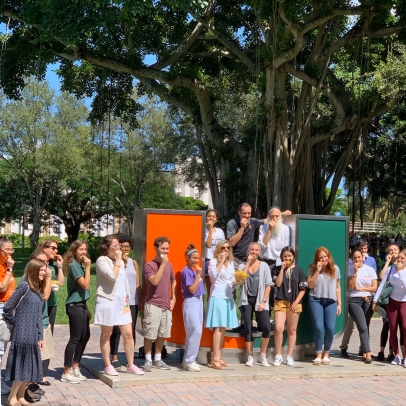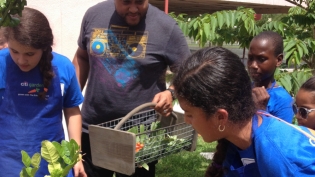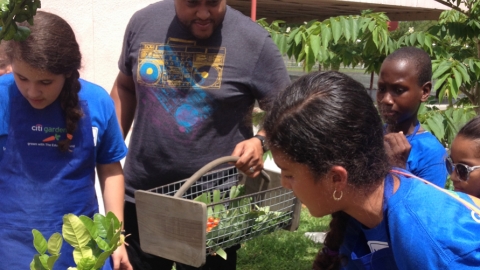Tackling Food Insecurity in Florida and the World
Food insecurity – the lack of access, at times, to enough nutritious food for everyone in the household – is a term that comes up often. It could mean a family has to choose between paying the electric bill instead of buying healthy foods or other trade-offs between needs like housing or medical bills and nutritious foods.
In Florida, more than 3 million residents are food insecure and receive food assistance, according to Feeding America. Officially known as the Supplemental Nutrition Assistance Program (SNAP), the benefit provides relief for some families, but often the allocated funds fall short of actual meal costs.
“It can sometimes be difficult to understand what the people around us are struggling with,” says Catherine Campbell, UF/IFAS assistant professor of community food systems. To raise awareness during Food Week, Oct. 11-16, UF/IFAS challenged students, faculty and the public to eat just $4 worth of food a day or $2 a day to reflect the status in low-income countries. “Participating in the SNAP challenge provides a first-hand understanding of how difficult it is to eat well on a very low budget,” says Adegbola Adesogan, director of the UF/IFAS Food Systems Institute.
World Food Day, celebrated every year in honor of the date of the founding of the Food and Agriculture Organization of the United Nations in 1945, promotes worldwide awareness and action for those who suffer from hunger, and for the need to ensure food security and nutritious diets for all.
At the University of Miami, Green U is marking World Food Day with a series of events aimed at raising awareness of making agri-food systems more efficient, resilient, inclusive and sustainable. It will call for action across sectors to ensure that our agri-food systems deliver enough affordable, nutritious, and safe food for all.
This year’s activities include “Agri-food systems for healthy communities,” an online seminar open to all, Oct. 18 from 6pm-7pm. Participants include Thi Squire, found of the Grow2Heal program at Homestead Hospital/Baptist Health; Roger Horne, executive director of Urban Green Works, who is behind their Community Food Security Initiative; and Franziska Alesso Bendisch, UN Association USA Miami board member.
World Food Day: Agri-food systems for healthy communities
Register here for free seminar.
Oct 18, 6-7pm
Fair Food Fair, The Rock Plaza
Oct. 19, noon-2pm
At the Fair Food Fair, local food experts will talk about healthy eating, urban farming, community gardens, food donations and ways everyone can get involved. Guests can visit the ECO Canes Food Pantry, the UM Sustainability Garden, Plant-Based Canes, Chartwells/Fresh Fusion vegan foods, Common Threads, Feeding South Florida and Edible South Florida, and learn about water conservation and composting information from the Miami-Dade Extension.
Planting and Beautifying at the Miller School of Medicine Food and Garden
Oct. 19, 4-6pm
Planting and Mintenance in the Garden with the Miller Green Student Committee
Join biomedical graduate and medical students at the Miller Herb and Food Garden for festivities celebrating sustainable food systems and the therapeutic power of food. There will be tours of their Food Forest, crafts to take home or adorn the garden, and a planting session. The event will take place at the garden, located in front of the Calder Library. These recipes are made from ingredients harvested in the Miller garden:
• Southern fried okra (sprinkle some chives at the top)
• Creole stewed okra with tomatoes and onion
• Spinach pasta tossed in a nutty brown butter and sage sauce
• Saag aloo (an Indian potato spinach dish)
Register now with Monika Chojnacka.
Food Day on Social Media
Visit miami.edu/foodday for new videos of plant-based cooking demos hosted by UM dining chef Joel Chamizo and Plant Based Canes.
Virtual Tropical Fruit Crunch
Post a fruit-crunching selfie on Instagram with the hashtag #FoodHeroes and tag @umiami_civicengagement







